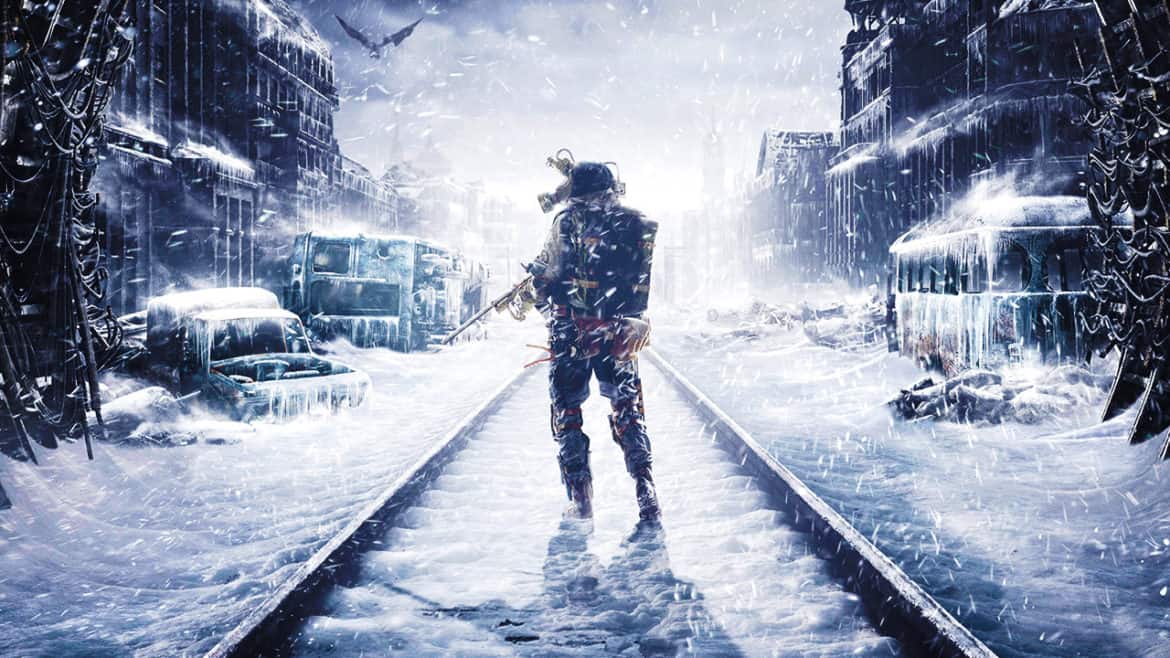
Beyond the dark, oppressive tunnels and radioactive surface of Moscow are the societies that emerge from a nuclear apocalypse and prospective lands habitable for new life. It’s a sensible change in setting that broadens Metro’s horizons, though it sometimes loses the focus the series is known for. Still, the firefights and stealth deliver a familiar and incredible tension, complemented by streamlined survival mechanics necessary to face terrifying threats. But with Artyom and friends punching a one-way train ticket in hopes of greener pastures, Metro Exodus becomes a journey more about the enduring relationships and ties that bind an earnest crew of survivors.
In the opening hours, returning protagonist Artyom is shown with a tenacious insistence that human life exists outside the metro. It gets him into serious trouble, and it’s further revealed that a larger conspiracy is at play. Your departure seems all too sudden and a bit of a disservice to the hardships endured in the previous games, but the heat of the moment and gut instincts of your companions help ease you into the premise of a year-long expedition to wherever the railroads lead.
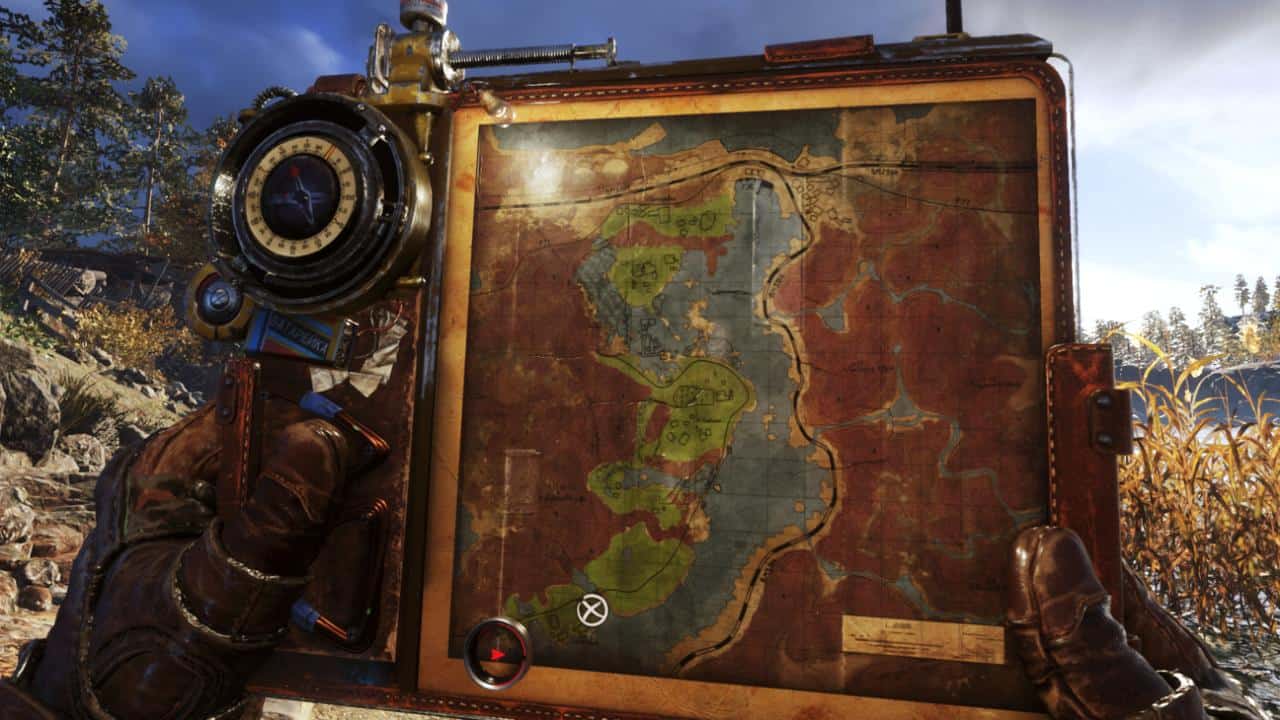










Thus, Metro Exodus takes the franchise in a bold direction by having a few significant chapters dedicated to open sandbox-style environments where you’re free to roam, explore non-critical points of interest, and follow the main story path. Exploration tends to not be a reward in itself as these open areas are sparse and struggle to incentivize you to venture far off. Doing so pits you against mutants that force you to expend valuable resources for very little in return. Navigating isn’t entirely enjoyable whether it be because of the sluggish rowboats in the Volga or empty lands of the Caspian. It sometimes feels as if Metro’s methodical movement was thrown into much larger spaces it wasn’t meant for. Thankfully, the game reins it in for its other chapters, especially when you make it to the lush forest of the Taiga that masterfully guides you to and from open areas and confined spaces at a tempered pace.
During your time in the open areas, optional side quests will organically populate your map by way of environmental hints or characters mentioning a point of interest in dialogue. These aren’t traditional side quests that get logged into a checklist; instead, they’re opportunities to experience more of Metro’s tense combat scenarios and lead to potentially finding new equipment, scavenging additional resources, or extracting smaller stories that feed into the bigger picture.
Despite the addition of open environments, Exodus primarily plays similarly to previous games, and for the majority of the time it channels the series existing strengths. Carefully laid out levels strike a balance between freedom of approach and linear, focused paths to objectives when you face human enemies, creating a fine flow within missions. Sure, some guards will have their backs conveniently turned or make silly moves in combat, but the overarching thrill that you can swiftly kill or be killed lingers. Another Metro staple of fighting mutated beasts delivers a different style of tension. Irradiated spiders, nimble mutants, and lurking amphibians strike fear as you brace for their attack in ravaged pitch-dark corridors and flooded buildings. Even the harmless spiders that crawl on your arm and across your face further build a terrifying atmosphere. It’s a state of vulnerability covered in a layer of dread that Metro gets right yet again.
Hardly do you ever feel either unfairly disadvantaged or overpowered, as weapons fire with impact and can be a challenge to handle. Each firearm has a roster of modifications that you’ll scavenge from enemy weapons–sights, scopes, barrels, loading mechanisms–which give you control of how you want to fight. This wide variety of customization options can turn a dinky revolver into a formidable long-range weapon or a janky Kalashnikov into a devastating assault rifle–it’s a satisfying system that gives gunplay an additional layer of depth. Modding can also be done using your backpack at any time, giving you the chance to adapt to situations as they arise.
Workbenches and your backpack are saving graces in Metro Exodus, since there are no longer any shops to buy equipment and items. Gone is the clever system of trading in military-grade bullets for critical items; in its place is a crafting system that’s both manageable and fitting for the survivalist mentality Exodus instills. You’ll accumulate scrap metal and chemicals to craft medkits, filters, and ammo, and maintain weapon condition. Even when you’re juggling systems such as keeping your flashlight charged and changing out gasmask filters, it never becomes overbearing and adds an enjoyable challenge of gear management even as you’re fending off foes throughout.
For the most part, Metro Exodus does away with the supernatural by leaving the clairvoyant Dark Ones in the past. In venturing into the unknown, the game tends to rely on familiar post-apocalyptic tropes. You have the cultists who’ve brainwashed locals to shun technology, a society of cannibals who put up an orderly front, and slavers who exploit and abuse others. But Exodus uses them to lay the groundwork for its better moments between characters and the struggles they endure. And despite the story being less centered around Artyom–who oddly remains a silent protagonist outside of loading screen monologues–Exodus unfolds in a much more personal fashion. The broader examinations of humanity and psychological twists have been dialed back to make room for a more grounded story about the necessary sacrifices you make for the ones you love.
These characters are brought to life with an impressive amount of dialogue that seems to go on forever, but because the moments of levity have a degree of charm and earnestness, you’ll want to stay and listen.
The best parts of the story are found in chapters between the action where you simply hang out aboard the Aurora, the train that functions as headquarters. Here you have the chance to tune the radio to eavesdrop on transmissions that play off of in-game events or listen to some sweet tunes, but more importantly, it’s your opportunity to unravel the endearing personalities that make up your crew. These characters are brought to life with an impressive amount of dialogue that seems to go on forever, but because the moments of levity have a degree of charm and earnestness, you’ll want to stay and listen. It’s not without a few lines that feel contextually out of place, though the natural flow of dialogue and interactions between the team communicates just as much about them as the stories they tell.
Anna shares her thoughts about the life she hopes to build with you as she rests her head on your lap. Damir’s commitment to his ethnic roots and what remains of his homeland of Kazakhstan leads to a bittersweet exchange. Stepan, the big softy, is an uplifting presence who also fills the air with his acoustic guitar. And Miller is the hardened leader exemplifying the tough love of a father figure who wants the best for you and his daughter Anna. These are just a few of the characters that represent the best in Metro Exodus’ narrative.
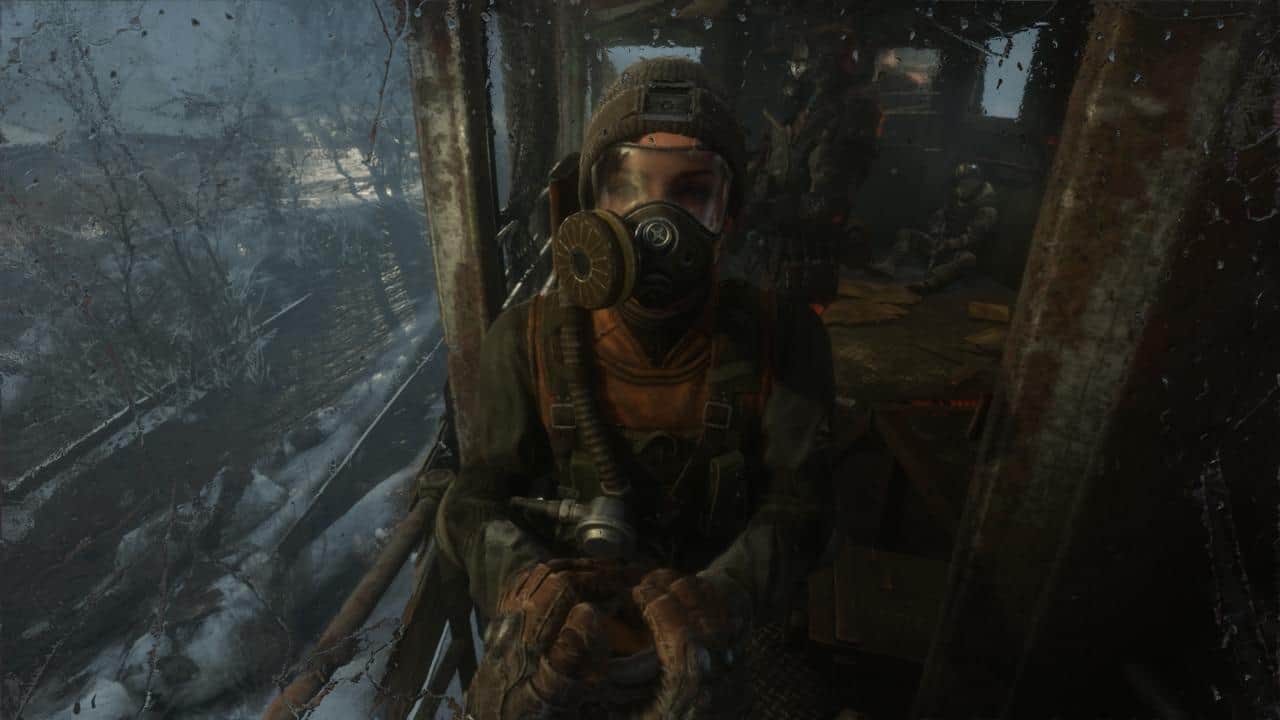
Anna is one of the several great characters in Metro Exodus’ story.










The exact narrative threads can change, however; Metro’s morality system makes a return, subtly judging your actions without explicitly revealing itself. What’s important is that it doesn’t always force you into a non-lethal approach; if you want to cut the throats of the heartless slavers or take a shotgun to a cannibal’s head, by all means do so, and as long as you don’t hurt the innocent, you’re in the clear. And with a keen eye or sharp ear, you may also come across unexpected events that’ll pay off depending on your course of action. Consequences don’t make themselves immediately apparent, but can lead to fascinating results as the story progresses.
It’s worth noting that technical issues are strewn throughout Metro Exodus. In one playthrough (pre-day one patch), I’ve fallen through the game world just after an auto-save, inexplicably lost upgraded equipment I couldn’t get back at a workbench, and had some rare, but noticeable framerate drops at modest settings with a fairly high-end PC. They didn’t break the game, but can frustrate and negate hard-earned progress. In the few hours spent with the PS4 version, the game was stable, and as expected it ran on a lower framerate than a capable PC. It’s not always a smooth ride, though it doesn’t take away from the gripping journey that the game takes you on.
You may miss the mystery and intrigue of the previous games, but Exodus puts together a charismatic crew of friends and family that you’ll want to follow to the ends of the earth.
At first glance, Metro Exodus gives you that wide-open, free, and dangerous world unbound by tunnels, though the scope of its tale focuses on what drives you personally and the lengths you’re willing to go to protect what matters most. The open sandboxes may not be strongest addition, but the game still embraces the sense of vulnerability and post-apocalyptic terror alongside impactful weapons used in refined combat and stealth scenarios. You may miss the mystery and intrigue of the previous games, but Exodus puts together a charismatic crew of friends and family that you’ll want to follow to the ends of the earth.

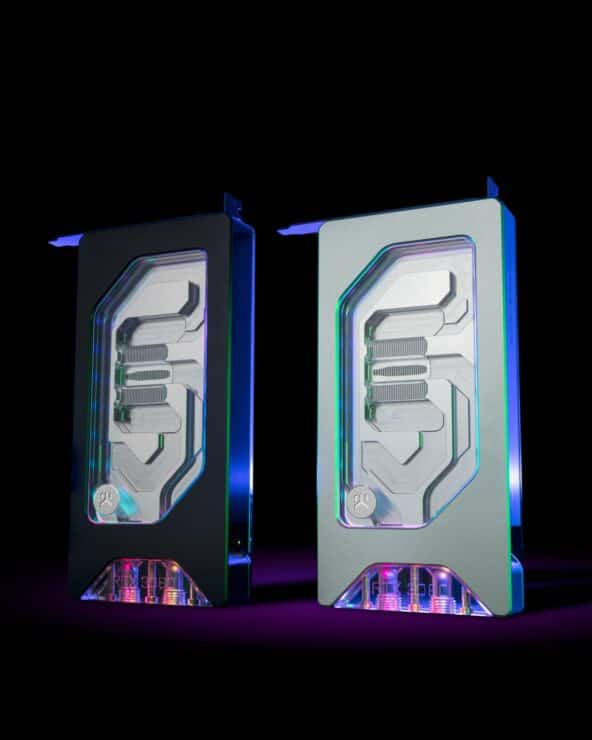
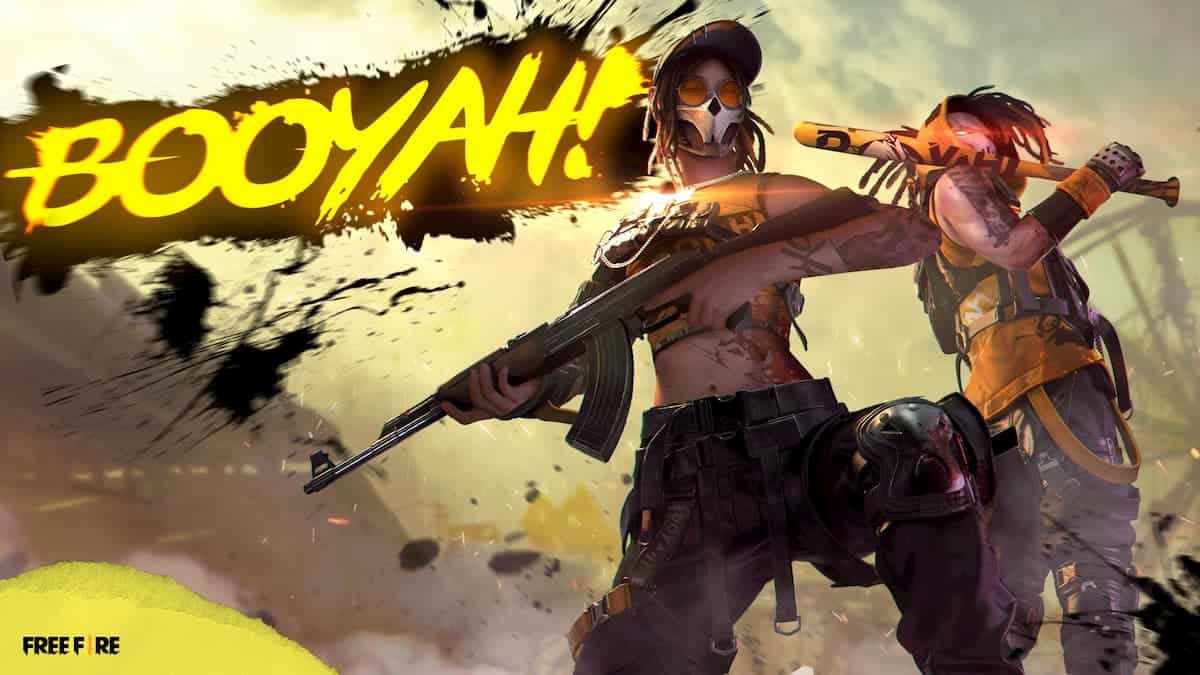


More Stories
Firefighting Simulator – The Squad review — Through the fire and the shame
Maid of Sker review — Death in the slow lane
PHOGS! review – It’s a dog-help-dog world out there